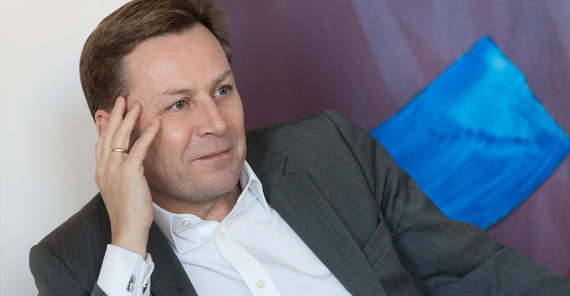The University of Potsdam has earned a particularly good reputation as a research university in recent years. What do you think is the “secret” of this success?
There are many reasons for this success. I think that even in its early years, the University of Potsdam paid attention to developing strengths, for example, in administrative sciences, cognitive research, and climate and earth sciences. We have consistently continued to develop these core areas but have also been able to add others. An essential basis for this is our hiring strategy, which has enabled us to attract outstanding researchers to Potsdam. Thanks to our tenure-track program, this also includes younger researchers. We also promote the further development of the administrative structures that make excellent research possible. The fruits of these efforts can be seen in the third-party funding we have attracted and the particularly good placements we have achieved in important rankings such as the international THE ranking, in which we are ranked 28th among young universities under 50 years worldwide. In Germany we are even number 1. An important consequence of this path is a healthy measure of self-confidence among the faculty. This is good, it did not exist in this form ten years ago. For a long time, we stood somewhat in the shadow of the region’s non-university research institutions. Now, however, we see that we can keep up internationally – and that our connections to the non-university research institutions do not limit but, on the contrary, inspire us. This is now reflected in our three proposals for clusters of excellence.
You have been President of the University of Potsdam since 2012. What vision for research at the UP did you bring with you – and have you been able to implement it?
My vision was to bring the University of Potsdam up from the lower midfield of the research landscape into the group of the best 20 - 30 German universities. We have succeeded, as the THE ranking, for example, shows. If you look around, we are now also perceived accordingly. This would not have been possible without close collaboration between the faculty, postdocs and Ph.D. students, as well as the administrative staff. This advancement was an important goal for me, but I think we can rise even higher. We want to continue to build on our strengths and make them more visible. One or more clusters of excellence would be important for this, and they would be an impressive proof. But we also want to increase the number of collaborative research centers at the University of Potsdam.
You travel a lot and represent the University of Potsdam all over the world. In which disciplines is the UP perceived as particularly strong?
Our principal areas of research are also internationally well known. While we lack a School of Medicine and the classical engineering sciences, we still represent a remarkably diverse range of subjects. At the end of the day, the research areas that resonate with our partners around the world are always those that are also well positioned there. Sometimes it’s the geosciences, sometimes the cognitive, biological, or life sciences. Technical universities often recognize our computer science and its applications. But the humanities are not to be neglected either. In India, I once turned on the TV and whom did I see? Our military historian Sönke Neitzel explaining World War II to the Indian audience. That, too, is an important part of the visibility of our research and demonstrates its scope.
In the previous round of the excellence strategy, it was not possible to get a cluster to Potsdam. In this round, three proposals were submitted by the UP at once. What has happened since 2018?
I think a university has to go through a maturing process after it is founded. That is not only evident in Potsdam. One cannot produce a top research university out of thin air in five years. Those German universities that were founded shortly after reunification are only now in a situation where they have the structures and the self-confidence to catch up with the top tier of research universities. This can also be seen in the proposals for clusters of excellence: In the first two rounds, many proposals from East German universities were not bad, but the track record was simply not there. Now we are entering the race with three proposals, all of which are, we believe, well-positioned. This is not a lack of appreciation for the previous generations but simply the result of steady development, strategic hirings, and better funding.
Where do you see the research university of Potsdam in five years?
I hope that we will have been successful with as many cluster proposals as possible and that the number of collaborative research centers will have increased as well. Five would be a respectable number for a university of our size. If we succeed, it is quite conceivable that in 10 - 20 years we will be among the top 10 - 15 German research universities. That is certainly ambitious but not presumptuous.
This text appears in the university magazine Portal Wissen - Zwei 2023 „Exzellenz“ (PDF).

